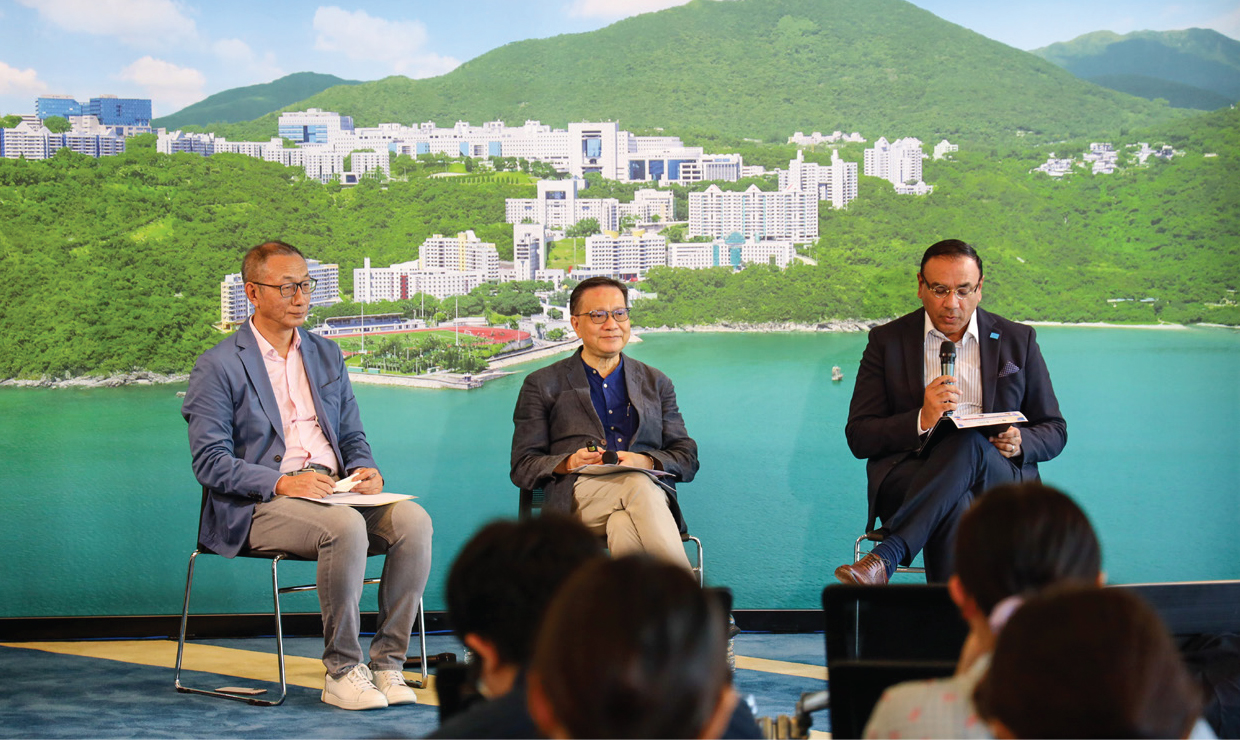On October 19, 2024, the Policy Dialogue Series commenced with an engaging session titled “Hong Kong Is Not Over, Why and How?: Economic Reset and International Impact.” Organized by the Division of Public Policy at the Hong Kong University of Science and Technology (HKUST) in collaboration with the Department of Social Sciences and Policy Studies at The Education University of Hong Kong (EdUHK), this event aimed to address the current economic challenges facing Hong Kong in the post-COVID landscape.
The distinguished panel included Professor Anthony Cheung, Chair Professor and Advisor (Public Administration) at EdUHK, and Adjunct Professor at HKUST; Professor Sung Yunwing, Associate Director of the Joint Shanghai-Hong Kong Development Institute (CUHK and Fudan University), and Associate Director of the Economic Research Centre at the Hong Kong Institute of Asia-Pacific Studies; Professor Heiwai Tang, Victor and William Fung Professor in Economics, Associate Dean (External Relations), and Director of the Asia Global Institute at HKU; Associate Professor Wang Xiangwei, Associate Professor of Practice in the Department of Journalism at HKBU; and Professor Lui Tai-lok, Adjunct Research Chair Professor at EdUHK. The session was moderated by Professor Naubahar Sharif, Head and Professor of Public Policy at HKUST. They discussed the need for strategic repositioning to secure an economic reset for Hong Kong.
Professor Anthony Cheung highlighted signs of growth but noted significant challenges remain, including slowing service growth and declining consumer spending. He emphasized that recovery relies heavily on external demand amidst trade tensions and geopolitical issues, labeling the situation a “triple whammy” of past protests, COVID-19, and US-China tensions. Cheung proposed a strategy to redefine Hong Kong’s value and improve governance to enhance competitiveness.
Professor Yun-Wing Sung examined the economy’s state, stating that while it’s stabilizing, it isn’t thriving. Although the population has rebounded slightly, growth is slow compared to China and Singapore. He expressed concerns about declining private investment and the importance of creating a stable environment to attract talent.
Professor Tai-Lok Lui addressed Hong Kong’s international profile, stressing the need to adapt to reduced connections with the US while exploring partnerships with ASEAN and European nations. He introduced the idea of “city diplomacy” to enhance Hong Kong’s global presence through cultural initiatives.
Mr. Wang Xiangwei argued for a four- or six-year planning approach for Hong Kong, akin to China’s five-year plan. He emphasized the need for a collaborative strategy that empowers citizens and effectively communicates Hong Kong’s narrative to the international community.
Professor Heiwai Tang provided an overview of Hong Kong’s economic landscape, noting GDP fluctuations and the importance of key sectors like financial services and tourism. He highlighted the recovery in business formation and the gradual rebound of tourism, while also addressing challenges in retail and fiscal sustainability.
Overall, the discussions underscored the need for strategic planning, collaboration, and innovative approaches to enhance Hong Kong’s economic resilience and international standing.





